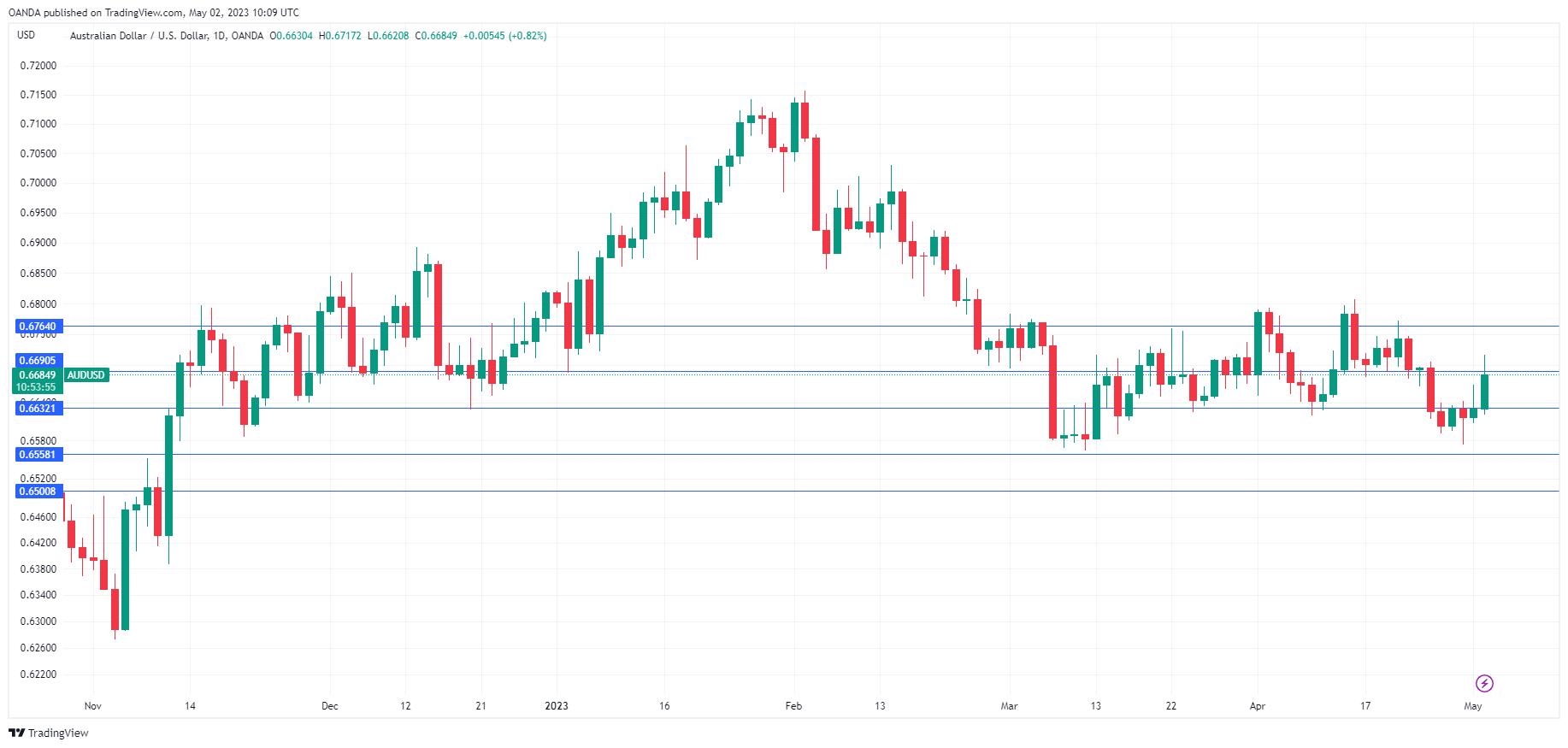Investing.com’s stocks of the week
- RBA unexpectedly raises rates by 25 bp
- AUD/USD jumps 1%
- Federal Reserve widely expected to follow with 25 bp hike
The Australian dollar has racked up sharp gains today. In the European session, AUD/USD is trading at 0.6691, up 0.93%.
RBA surprises with 25 bp hike, Aussie surges
The Reserve Bank of Australia has a knack for surprising the markets, and today’s rate hike certainly qualified. The markets had widely expected that the RBA would pause rates for a second straight month, but the central bank defied expectations and delivered a 25-basis point hike. This brought the benchmark cash rate to 3.85%. The Australian dollar surged by 0.95% in response to the move.
RBA Governor Lowe defended the hike in his rate statement, saying that inflation “at 7% is still too high” and that a rate increase is needed in order to bring inflation back down to the target of 2%. The decision to raise rates was made despite last week’s inflation release, which showed inflation fell from 7.8% to 7.0% in the first quarter. The robust labor market and the sharp increase in immigration were factors in favor of a hike that the RBA took into account.
The rate hike is not only adding to the misery of households who have mortgage payments but is also raising concerns that the RBA may end up over-tightening and the economy could have a hard landing. The RBA was heavily criticized for allowing inflation to climb out of control and policymakers may be gun shy about ending the current rate cycle while inflation is so high.
The Federal Reserve holds its meeting on Wednesday and market pricing of a 25-basis point hike has jumped to 96%, up from 75% just a week ago. Unlike the RBA decision, I don’t expect the Fed to defy expectations and take a pause at tomorrow’s meeting. The RBA hike raised concerns about a hard landing, and we are hearing similar concerns that another Fed hike will raise the likelihood of the US economy tipping into recession.

AUD/USD Technical
- AUD/USD has pushed past resistance at 0.6632 and tested resistance at 0.6690 earlier. Above, there is resistance at 0.6896
- 0.6558 and 0.6500 are providing support
